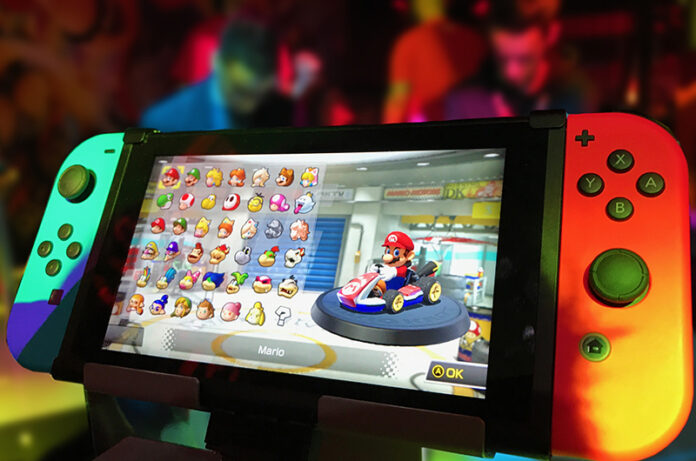It’s possible that video games aren’t the first thing that comes to mind when you think about the ways in which new technology have the ability to make people’s lives better all around the world.
However, virtual games have the potential to play a significant part in the process of educating Artificial Intelligence (AI) to have a good impact on the actual world.
The domains of artificial intelligence (AI) and video games are currently being brought together by researchers from all around the world in an effort to create environments that could assist machines in learning from gaming data and provide insights into the development of AI.
The intention is to leverage the structures of virtual gaming to strengthen AI’s capacity for self-learning, which might then be used to applications in the real world, such as progress made in the field of healthcare as well as in the development of smart and sustainable cities.
So how can video gaming speed the pace at which AI develops so that people worldwide can see benefits to their daily lives?
The Function Of Video Games
Games have been used for a very long time as a method to assess the development of Artificial Intelligence (AI). This method demonstrates how “clever” computer algorithms are by pitting them against the most skilled human players in competitions of strategic thinking.
For instance, in 1996, IBM’s Deep Blue computer was successful in dethroning the reigning chess world champion. In 2016, Google’s AlphaGo algorithm was successful in defeating a world-renowned Go player. Go is a traditional Chinese board game. At the beginning of this month, OpenAI’s algorithm achieved victory in the multiplayer online war game Dota 2 against a group of human players.
Julian Togelius, an associate professor at the Tandon School of Engineering at New York University, believes that “video games as a whole give the best test of intellect we have.”
“Video games are a terrific way of teaching AI algorithms because they are meant to provide human minds a gradual advance into greater and harder tasks,” says one expert.
“The gradual progression into harsher and harder challenges is what human minds thrive on.”
Togelius adds that video games are made with the intention of testing the capabilities of the human mind by requiring players to concentrate on things such as conquering hurdles and following sub-stories.

According to him, the fact that players are always picking up new information is one of the most important aspects of game design. This is also one of the reasons why so many people enjoy playing games.
According to Togelius, the development of algorithms in a virtual environment can take place far more quickly and at a significantly cheaper cost than it is possible for a robot to learn to execute tasks in a physical setting.
According to what he has said, “in the time that a robot does a task ten times, you may have an algorithm play a game 10,000 times.” You are not required to be present to ensure that it does not break or become overheated.
Application Of AI In Real World
The tangible advantages that playing virtual games can have for AI are already beginning to emerge.
For instance, researchers at OpenAI recently presented a program that has self-taught itself how to manage a cube by learning via trial and error in a computer simulation for the equivalent of around one hundred years.
Togelius believes that in the not-too-distant future, there will be clear applications of virtual training to real-world activities. One such application could be the use of a virtual driving game to teach an artificial intelligence for prospective usage in autonomous vehicles.
The development of autonomous vehicles may bring about a number of benefits, including an improvement in road safety, a lessening of the impact of traffic congestion, and a lowering of pollutants. Building smarter, more sustainable cities is the focus of United Nations Sustainable Development Goal 11, and the International Telecommunications Union’s (ITU) efforts to contribute to this goal include capitalizing on the opportunities presented by autonomous vehicles.

Togelius says that there is also the possibility to engage in creative non-conventional thinking by transferring the skills gained from playing video games to other domains. For instance, he suggests that teaching an artificial intelligence in StarCraft, a challenging multiplayer online game in which the player is required to apply strategy in order to progress, could offer management abilities.
Togelius explains that when you are “creating positions,” both tactical and strategic, “developing and coordinating a logistical network,” and “making sure resources are flowing,” you are doing all of these things. “It is evidence that [an algorithm] can learn something similar to a real-world activity if a game has many of the same problems as a real-world task,”
Learning From AI
Observing how algorithms function in virtual environments, like as video games, might also shed light on how they act in the real world. According to Togelius, this provides researchers with a greater understanding of how an algorithm approaches challenges and makes judgments.
According to him, “by seeing AI agents play games, we understand more about what AI is excellent at and what humans are good at.”
This could be helpful for companies and policymakers in identifying areas in which AI could boost efficiency or complement existing work in ways that are beneficial to humans. Observing AI in these kinds of circumstances may also help one discover new approaches or opportunities. This is yet another advantage of doing so.

According to a paper that was published earlier this year by machine learning researchers from the University of Freiburg in Germany, an algorithm that used evolutionary strategies, in which the most successful algorithms survive and evolve, exploited a bug in the video game Q*bert to rack up almost infinite points.
The researchers were from the University of Freiburg in Germany. According to one of the paper’s authors, Frank Hutter, the problem had been there in the game for the entirety of its 36-year lifespan but was never discovered by anyone, not even the developer.
According to Hutter’s explanation, the algorithm was able to uncover the flaw thanks to its exploratory behavior and its eagerness to try new things in order to maximize points over the long term.
He explains that “by design,” the program analyzes long-term dependencies. “Its only concern is, ‘what is the score at the very end,’ whereas other techniques are more concerned with, ‘how can I acquire points quickly?,’ which is how people attempt to play games.
In The Future
There is still a great deal for both humans and AI to gain knowledge on. For instance, just a few weeks after OpenAI defeated a team of human players in Dota 2, it was defeated by professional players in the yearly tournament competition for the video game.
Togelius argues that moving forward, one of the questions that needs to be answered is how to expand the capabilities of AI beyond the realm of specific activities and into more generic intelligence.
“We’re very excellent at training algorithms to do certain things and play particular games, but we’re still taking baby steps toward having them generalize,” he says. “We’re very strong at teaching algorithms to do particular things and play particular games.”
“What Artificial Intelligence (AI) and research into playing games is bringing back to the wider AI field right now is the fact that people are building methods that are generally applicable, that are designed for playing games, and then they can be used for other things,”
Find games here.









